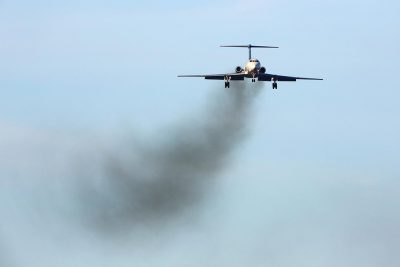The objective proposed by the aeronautical industry includes used cooking oil, considering it as a material that is “no longer a waste” but a raw material.
Used vegetable oil, once considered as waste, is now a valuable feedstock for the production of fuels derived from non-fossil sources, also known as SAF. In aeronautics, it is known as sustainable aviation fuel; and in Japan alone, about one third of the 400,000 tons used last year.
The solution
The International Civil Aviation Organization (ICAO) has set the goal of reducing CO2 emissions to zero, which implies opting for alternative fuels and abandoning old aircraft that produce high carbon emissions. The goal of reducing CO2 emissions was set for 2050, in response to public pressure on the issue of pollution and its influence on global warming.
ATAG(Air Transport Action Group) experts revealed the 2019 emission figures, which accounted for 2% of global emissions, representing the emission of 915 million tons of CO2.
For the same reason, the aeronautical industry found its “salvation” in cooking oil and the production of SAF, foreseeing an 80% reduction in emissions after the substitution of conventional fuel.
Its market
The current market for SAF is in the European Union, which favors the switch from conventional high-emission fuel to a more moderate one. Also within Europe is the largest current producer of SAF, in Finland, by the company Neste.
However, the goal is for the world’s major aviation markets to be able to use SAF instead of conventional fuels. To this end, the company began expanding its market in Asia, where the region accounts for 40% of jet fuel consumption.
Photo: All rights reserved.
Source: In pursuit of carbon neutrality, the aerospace industry turns to used cooking oil.

